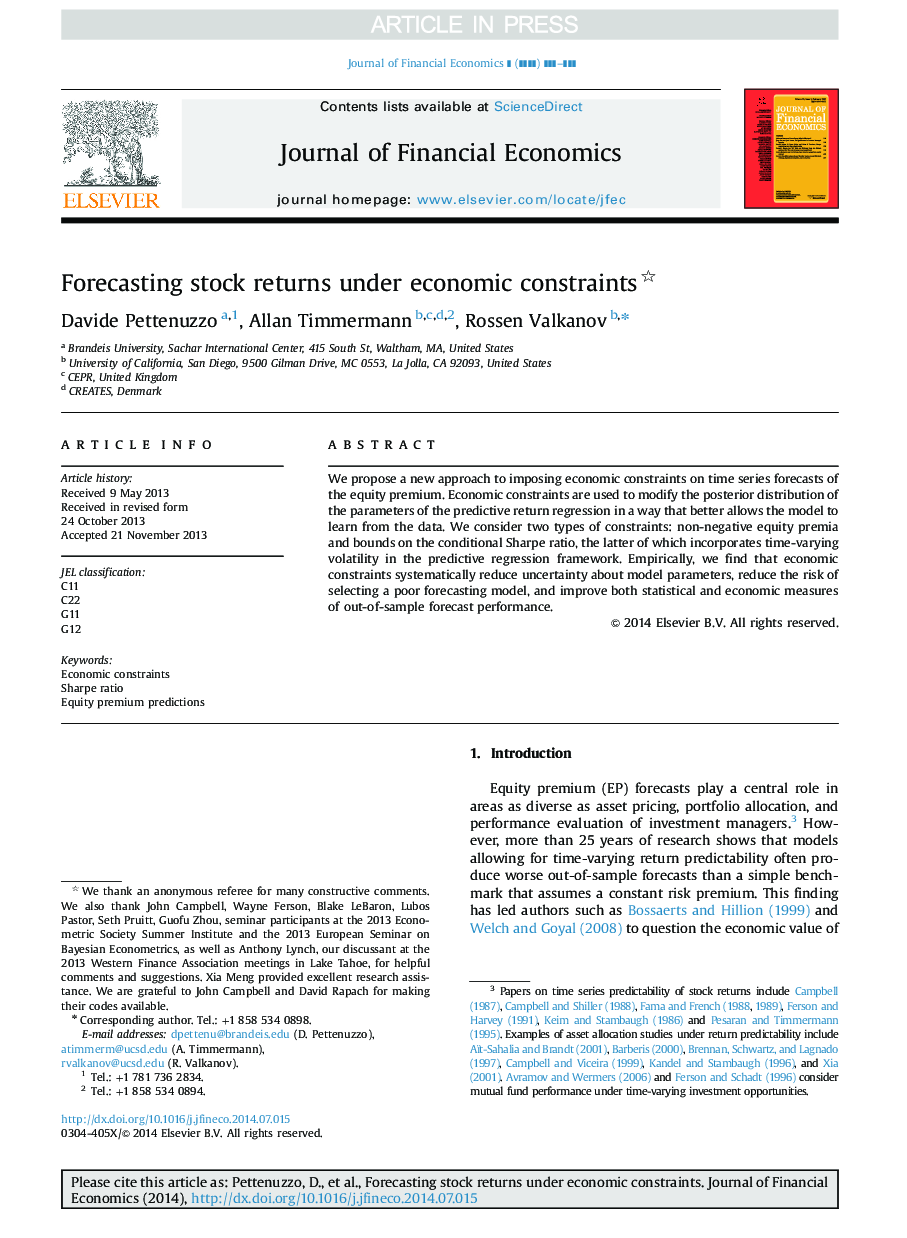| Article ID | Journal | Published Year | Pages | File Type |
|---|---|---|---|---|
| 10475801 | Journal of Financial Economics | 2014 | 37 Pages |
Abstract
We propose a new approach to imposing economic constraints on time series forecasts of the equity premium. Economic constraints are used to modify the posterior distribution of the parameters of the predictive return regression in a way that better allows the model to learn from the data. We consider two types of constraints: non-negative equity premia and bounds on the conditional Sharpe ratio, the latter of which incorporates time-varying volatility in the predictive regression framework. Empirically, we find that economic constraints systematically reduce uncertainty about model parameters, reduce the risk of selecting a poor forecasting model, and improve both statistical and economic measures of out-of-sample forecast performance.
Related Topics
Social Sciences and Humanities
Business, Management and Accounting
Accounting
Authors
Davide Pettenuzzo, Allan Timmermann, Rossen Valkanov,
